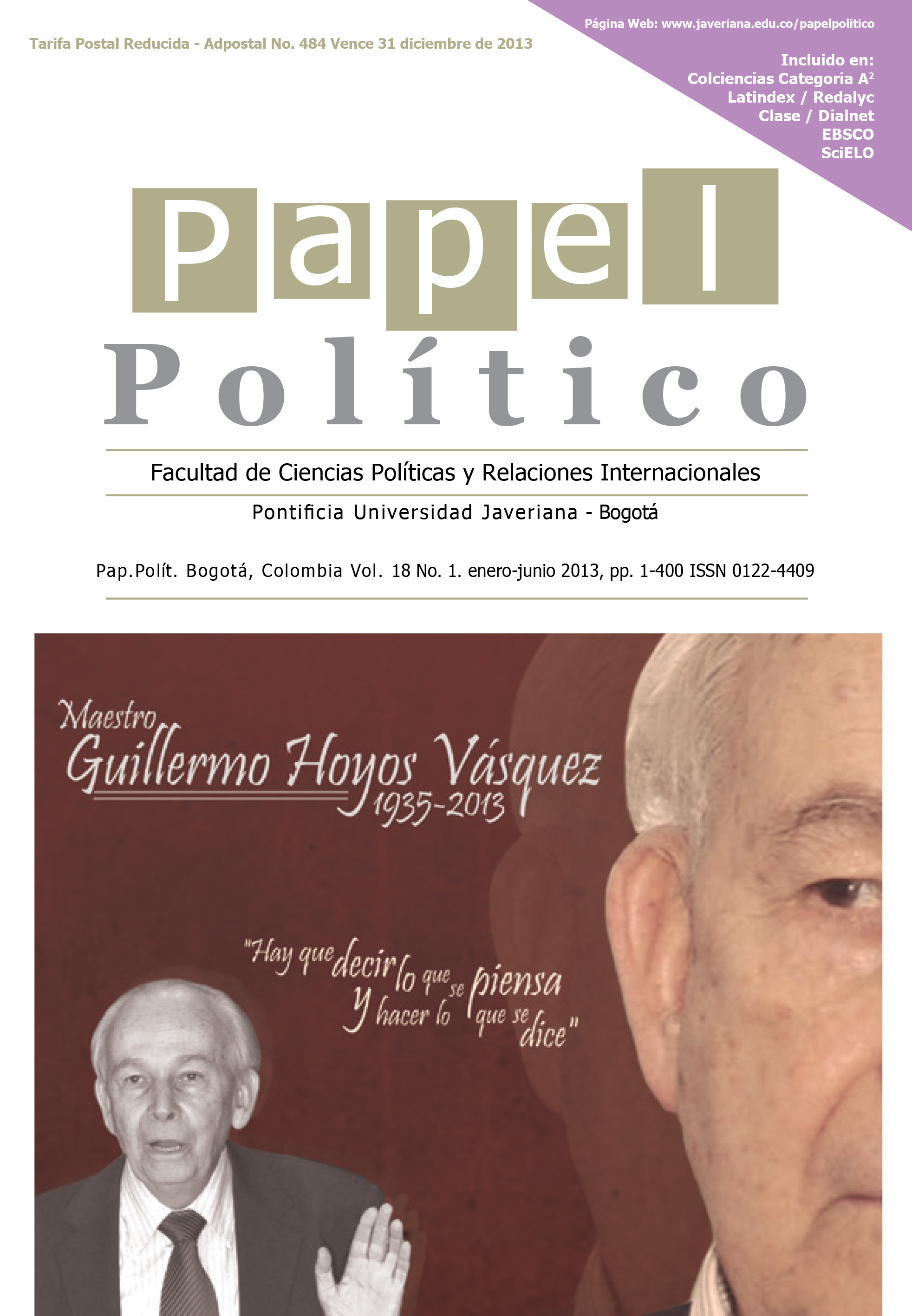Abstract
Deliberative democracy is a normative ideal of democracy. This model is a proposal for the regeneration of the legitimacy of our institutions, but also a mechanism for decision making. It is based on two different dimensions: a procedural dimension where the model demands the inclusion and an equal capacity to influence the final decision of all those affected (Cohen, 1989; Bohman, 1996; Habermas, 1992) and a substantive dimension where the political decisions are made through a collective procedure of argumentation and public discussion. If these conditions are recognized, the decisions will be more rational and better decisions. This paper has two aims. First I will present the key elements of this epistemic conception of political legitimacy. Second I will show the challenges it faces. On a one hand, the counterfactual of many of its postulates and on the other, the obvious problems of bias consensualist of this model.This journal is registered under a Creative Commons Attribution 4.0 International Public License. Thus, this work may be reproduced, distributed, and publicly shared in digital format, as long as the names of the authors and Pontificia Universidad Javeriana are acknowledged. Others are allowed to quote, adapt, transform, auto-archive, republish, and create based on this material, for any purpose (even commercial ones), provided the authorship is duly acknowledged, a link to the original work is provided, and it is specified if changes have been made. Pontificia Universidad Javeriana does not hold the rights of published works and the authors are solely responsible for the contents of their works; they keep the moral, intellectual, privacy, and publicity rights.
Approving the intervention of the work (review, copy-editing, translation, layout) and the following outreach, are granted through an use license and not through an assignment of rights. This means the journal and Pontificia Universidad Javeriana cannot be held responsible for any ethical malpractice by the authors. As a consequence of the protection granted by the use license, the journal is not required to publish recantations or modify information already published, unless the errata stems from the editorial management process. Publishing contents in this journal does not generate royalties for contributors.


